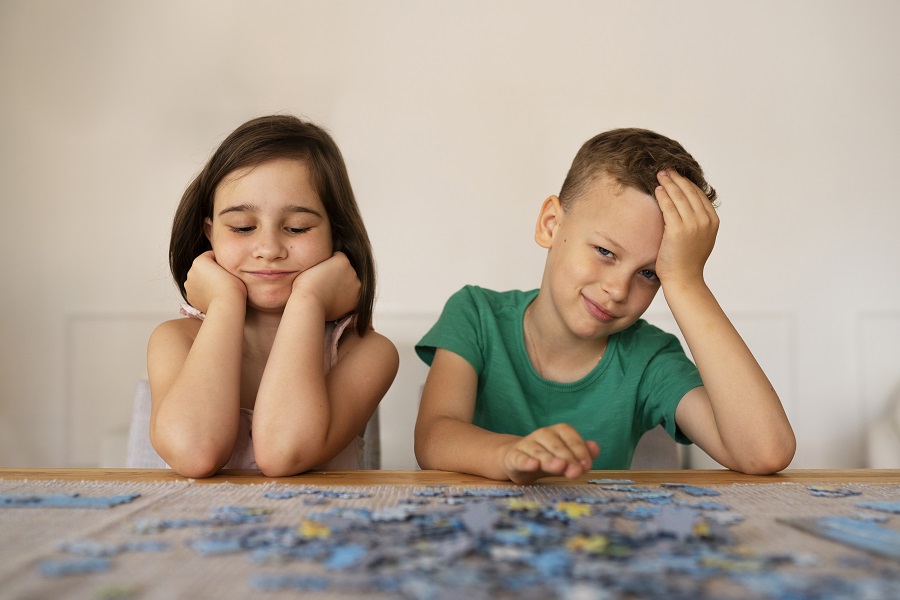How Puzzle Games Help Sharpen Young Minds
In the digital age, children are surrounded by screens and countless entertainment options. While many parents worry about excessive screen time, it’s important to recognize that not all games are mindless distractions. Puzzle games, in particular, have emerged as powerful educational tools that can help sharpen young minds while keeping them engaged and entertained. Whether physical jigsaw puzzles, mobile brain teasers, or online logic challenges, these games play a significant role in cognitive development.
This article explores how puzzle games contribute to a child’s mental growth, the skills they develop, and some of the best puzzle games available for different age groups.
Why Puzzle Games Matter in Early Learning
Children are naturally curious and love solving problems. Puzzle games nurture this curiosity by challenging their brains to think in new and creative ways. When kids engage in puzzle-solving, they are doing much more than simply moving pieces around. They are building valuable life skills that contribute to academic success and overall mental development.
Puzzle games promote active engagement, requiring attention, patience, and a desire to find solutions. This process not only builds intelligence but also increases resilience and perseverance in children.
Cognitive Benefits of Puzzle Games
- Improves Problem-Solving Skills
At the heart of every puzzle game lies a problem that needs to be solved. Children must think critically and apply logic to reach the solution. Whether it’s fitting the correct puzzle piece or solving a Sudoku puzzle, kids learn to analyze, plan, and try different strategies until they succeed. These problem-solving experiences prepare them for real-world challenges.
- Enhances Memory and Concentration
Puzzle games often require children to remember shapes, patterns, or specific moves. For example, matching games test short-term memory, while more complex puzzles strengthen long-term memory and concentration. Repeating these tasks helps improve memory retention and focus, which are essential for academic learning.
- Boosts Spatial Awareness
Solving puzzles involves recognizing how pieces fit together spatially. This enhances a child’s understanding of shapes, positions, and directions. Strong spatial awareness is linked to better performance in subjects like math, geometry, and even reading.
- Develops Fine Motor Skills
Physical puzzles, like jigsaws or shape sorters, involve picking up and placing small pieces. This builds hand-eye coordination and fine motor control in young children. These skills are essential for everyday activities like writing, using scissors, and tying shoelaces.
- Encourages Patience and Persistence
Puzzles are not solved instantly. They teach children to stay patient, try again after failure, and keep working toward a goal. These are valuable emotional skills that help children build confidence and self-discipline.
- Fosters Creativity and Imagination
Many puzzle games involve storytelling, visual design, and pattern recognition. Games like tangrams, for example, challenge kids to form shapes and animals from basic geometric pieces. This not only improves logic but also encourages imaginative thinking.
Types of Puzzle Games and Their Benefits
There is a wide variety of puzzle games tailored to different age groups and learning levels. Here are some common types:
- Jigsaw Puzzles: These help young children understand whole-part relationships, improve hand-eye coordination, and develop problem-solving abilities.
- Matching and Memory Games: Often used with preschoolers, these improve short-term memory, attention span, and pattern recognition.
- Crossword and Word Puzzles: Ideal for older kids, these enhance vocabulary, spelling, and general knowledge.
- Sudoku and Number Games: Great for building logical reasoning and number fluency.
- Tangrams and Shape Puzzles: Perfect for developing visual-spatial skills and creative thinking.
- Escape Room and Logic Games (Digital): These immersive puzzles challenge kids to use clues, logic, and teamwork, especially in classroom settings.
Best Puzzle Games for Children
Here are a few top-rated puzzle games and apps that are educational and fun:
- Thinkrolls: A logic puzzle app where kids solve problems by guiding a character through different obstacles.
- Rush: A Disney Pixar Adventure: Includes problem-solving elements and interactive puzzles with favorite movie characters.
- Lightbot: A coding-based puzzle game that helps children think sequentially and logically.
- Osmo Tangram: Combines physical tangram pieces with digital feedback, offering a hands-on and interactive experience.
- Monument Valley: A beautifully designed app where players solve architecture-based puzzles using visual and spatial reasoning.
- Brainzy Games by Education.com: A wide range of online puzzle games focusing on math, reading, and logic.
How Parents and Teachers Can Encourage Puzzle Play
To make the most of puzzle games in a child’s development, here are some helpful tips for parents and educators:
- Introduce puzzles early, starting with simple shape sorters or wooden puzzles
- Offer age-appropriate puzzles to match skill level and avoid frustration
- Encourage children to talk through their thought process as they solve puzzles
- Play together to build confidence and turn learning into a bonding activity
- Mix screen-based puzzle games with physical board games for balance
- Use puzzles as part of lesson plans in subjects like math, language, and science
Conclusion
Puzzle games are much more than a way to pass time—they are powerful learning tools that promote cognitive development, creativity, and emotional intelligence. By incorporating puzzle play into daily routines, parents and educators can help sharpen young minds and prepare them for future challenges.
With the growing selection of puzzle games available—both physical and digital—it’s easier than ever to find the perfect match for every child. Whether it’s solving a jigsaw puzzle, playing a memory game, or exploring a logic-based app, children gain valuable skills that will support them throughout their academic journey and beyond.
By turning learning into a game, puzzle play ensures that education feels exciting, not stressful, helping kids grow smarter while having fun.






